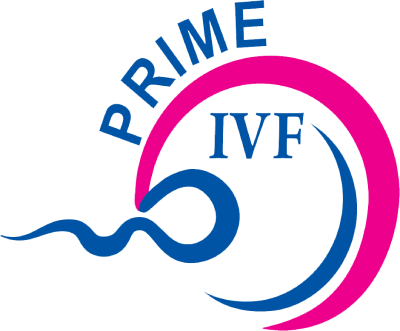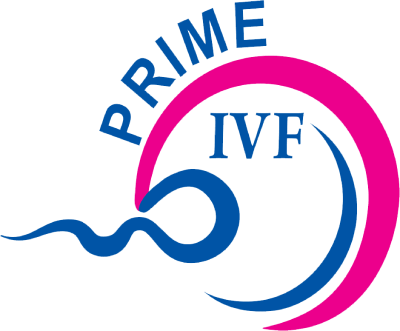Understanding IVF Success Rates After Natural Pregnancy: What You Need to Know? is crucial for couples planning to conceive after facing fertility challenges. Many women assume that a previous natural pregnancy guarantees success with assisted reproductive technologies like IVF. However, it’s not always straightforward. Having had a natural pregnancy before does provide some reassurance about fertility potential, but it doesn't always ensure a higher IVF success rate. There are several factors like age, the current reproductive health of both partners, and underlying medical conditions that significantly influence IVF outcomes. When researching IVF Success Rates After Natural Pregnancy: What You Need to Know?, it’s important to realize that reproductive conditions can change over time. A woman who conceived naturally five or ten years ago might now face new fertility obstacles due to age-related decline in egg quality or new medical conditions such as endometriosis or PCOS. Similarly, male partners may experience changes in sperm health over the years, which can impact the effectiveness of IVF. That’s why previous success with natural conception doesn’t guarantee a similar outcome with IVF. IVF treatment is complex and success varies from case to case. Couples should consult a fertility expert to understand their current reproductive health and chances with IVF. While past natural conception is a positive sign, IVF success still depends on current biological and clinical factors. Always choose a well-reputed fertility center for accurate evaluation and individualized treatment. Stay informed about IVF Success Rates After Natural Pregnancy: What You Need to Know? so that you can make well-informed decisions about fertility options.
https://www.primeivfcentre.com..../blog/ivf-success-ra


Many individuals considering fertility treatments often wonder, Is IUI process painful? Intrauterine insemination (IUI) is generally considered a simple and relatively painless procedure. During the process, a thin, flexible catheter is used to insert washed and concentrated sperm directly into the uterus. While this may sound uncomfortable, most women report feeling only mild cramping or pressure similar to that of a routine pap smear. The entire procedure takes just a few minutes and does not require anesthesia. Any discomfort is usually brief and manageable, making IUI a less invasive option compared to other fertility treatments. However, pain tolerance can vary from person to person. Some women may experience mild uterine cramping when the catheter passes through the cervix, while others may feel nothing at all. If the cervix is difficult to access or if there’s a heightened sensitivity, slight pain might occur. Still, it's important to note that severe pain is not typical during IUI. If you are anxious about discomfort, your doctor can provide suggestions to help ease the process, such as taking a mild pain reliever beforehand or practicing relaxation techniques. Your fertility specialist will also ensure the procedure is done with care to minimize any discomfort. To sum up, when asking Is IUI process painful? the most accurate answer is that it is usually not. While a few women might feel mild, temporary discomfort, the majority tolerate the procedure well. It’s a quick, outpatient treatment with minimal downtime, allowing most people to resume normal activities the same day. Open communication with your doctor can help address any fears and ensure a more comfortable experience. Understanding what to expect can significantly reduce anxiety and make the IUI process feel much more manageable for those undergoing it.
https://www.primeivfcentre.com..../blog/is-iui-process
Knowing when to do pregnancy test after IUI is crucial for couples hoping for a positive result. Intrauterine Insemination (IUI) is a widely used fertility treatment, and the two-week wait after the procedure can feel incredibly long and emotional. Testing too early might give a false negative, as the body needs time to develop detectable levels of hCG (human chorionic gonadotropin), the hormone produced during pregnancy. Typically, it is advised to wait at least 14 days after the IUI procedure before taking a pregnancy test. This waiting period allows the embryo, if fertilization has occurred, to implant in the uterus and begin producing hCG in sufficient quantities. Taking a test too soon may not accurately reflect your pregnancy status and may cause unnecessary stress. Additionally, if fertility medications were used, they can sometimes interfere with the results and lead to a false positive. During this wait, it’s best to stay relaxed, continue any prescribed medications, and maintain a healthy lifestyle. Light symptoms like mild cramping, breast tenderness, or fatigue might be experienced during this time, but they can be similar to premenstrual signs, so they shouldn’t be solely relied upon as indicators of pregnancy. It’s always a good idea to consult your fertility specialist before taking a pregnancy test. They might recommend a blood test (beta hCG) at the clinic, which is more accurate than an at-home urine test. Patience, emotional support, and professional guidance during this waiting phase can make a significant difference in managing expectations and handling results. Remember, every journey is unique, and your fertility expert is your best ally in this process.
https://www.primeivfcentre.com..../blog/when-to-do-pre
शुक्राणु को अंडे तक पहुंचने में कितना समय लगता है: गर्भावस्था के लिए उपयुक्त समय की जानकारी: गर्भधारण की प्रक्रिया में सबसे महत्वपूर्ण चरणों में से एक है शुक्राणु का अंडे (एग) तक पहुंचना। यह सवाल अक्सर दंपत्तियों के मन में आता है कि शुक्राणु को अंडे तक पहुंचने में कितना समय लगता है, और गर्भावस्था के लिए सबसे उपयुक्त समय कौन-सा होता है। संभोग के बाद, जब पुरुष का वीर्य स्त्री के शरीर में प्रवेश करता है, तब लाखों की संख्या में शुक्राणु गर्भाशय की ओर बढ़ते हैं। इनमें से केवल कुछ ही शुक्राणु फेलोपियन ट्यूब तक पहुंच पाते हैं, जहां अंडाणु (एग) से उनका मिलन संभव होता है। आमतौर पर शुक्राणु को अंडाणु तक पहुंचने में 30 मिनट से लेकर कुछ घंटों तक का समय लग सकता है, लेकिन कुछ मामलों में यह समय 12 घंटे तक भी हो सकता है। शुक्राणु स्त्री के प्रजनन तंत्र में 5 दिनों तक जीवित रह सकते हैं, जबकि अंडाणु केवल 24 घंटे तक जीवित रहता है। इसलिए, यदि आप गर्भधारण की योजना बना रहे हैं, तो अंडोत्सर्ग (ओव्यूलेशन) से 1-2 दिन पहले और ओव्यूलेशन के दिन संबंध बनाना सबसे अधिक उपयुक्त समय माना जाता है। गर्भावस्था के लिए सफल प्रयास करने हेतु, अपने मासिक धर्म चक्र को समझना और ओव्यूलेशन की सही तारीख का अनुमान लगाना अत्यंत जरूरी है। आजकल बाजार में उपलब्ध ओव्यूलेशन किट या विशेषज्ञ की सलाह से आप सही समय की पहचान कर सकते हैं। सही समय पर संबंध बनाने से गर्भधारण की संभावना काफी बढ़ जाती है।
https://www.primeivfcentre.com..../blog/shukraanu-ko-a
शुक्राणु को अंडे तक पहुंचने में कितना समय लगता है: गर्भावस्था के लिए उपयुक्त समय की जानकारी: गर्भधारण की प्रक्रिया में सबसे महत्वपूर्ण चरणों में से एक है शुक्राणु का अंडे (एग) तक पहुंचना। यह सवाल अक्सर दंपत्तियों के मन में आता है कि शुक्राणु को अंडे तक पहुंचने में कितना समय लगता है, और गर्भावस्था के लिए सबसे उपयुक्त समय कौन-सा होता है। संभोग के बाद, जब पुरुष का वीर्य स्त्री के शरीर में प्रवेश करता है, तब लाखों की संख्या में शुक्राणु गर्भाशय की ओर बढ़ते हैं। इनमें से केवल कुछ ही शुक्राणु फेलोपियन ट्यूब तक पहुंच पाते हैं, जहां अंडाणु (एग) से उनका मिलन संभव होता है। आमतौर पर शुक्राणु को अंडाणु तक पहुंचने में 30 मिनट से लेकर कुछ घंटों तक का समय लग सकता है, लेकिन कुछ मामलों में यह समय 12 घंटे तक भी हो सकता है। शुक्राणु स्त्री के प्रजनन तंत्र में 5 दिनों तक जीवित रह सकते हैं, जबकि अंडाणु केवल 24 घंटे तक जीवित रहता है। इसलिए, यदि आप गर्भधारण की योजना बना रहे हैं, तो अंडोत्सर्ग (ओव्यूलेशन) से 1-2 दिन पहले और ओव्यूलेशन के दिन संबंध बनाना सबसे अधिक उपयुक्त समय माना जाता है। गर्भावस्था के लिए सफल प्रयास करने हेतु, अपने मासिक धर्म चक्र को समझना और ओव्यूलेशन की सही तारीख का अनुमान लगाना अत्यंत जरूरी है। आजकल बाजार में उपलब्ध ओव्यूलेशन किट या विशेषज्ञ की सलाह से आप सही समय की पहचान कर सकते हैं। सही समय पर संबंध बनाने से गर्भधारण की संभावना काफी बढ़ जाती है।
https://www.primeivfcentre.com..../blog/shukraanu-ko-a


